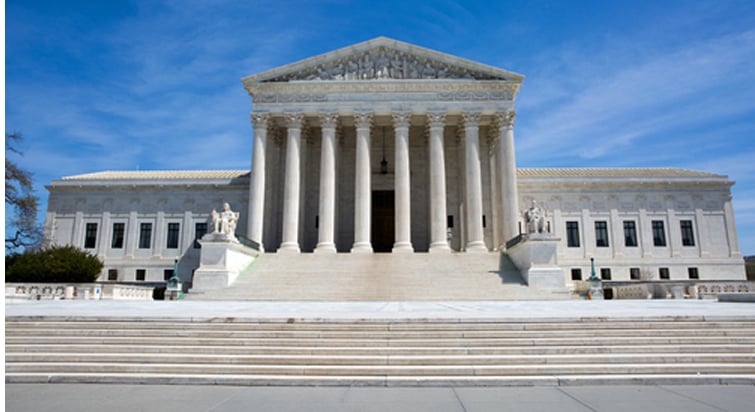Supreme Court to weigh double jeopardy issue that could impede state cases after presidential pardon

Steven Frame / Shutterstock.com
The U.S. Supreme Court on Thursday agreed to consider whether to overturn a long-standing rule that allows federal and state prosecutions for the same offense.
The cert petition filed on behalf of Terance Gamble urges the Supreme Court to overrule the so-called “separate sovereigns exception” and “restore the original meaning of the double jeopardy clause.” NBC News and CNN have coverage, while the SCOTUSblog case page is here.
If the Supreme Court overturns the precedent, it could make it more difficult for a state to try someone who is pardoned by the president after federal trial proceedings have begun, according to CNN Supreme Court analyst Stephen Vladeck, a University of Texas law professor.
Gamble was pulled over for a broken taillight in November 2015, more than seven years after his conviction for second-degree robbery. Police smelled marijuana, conducted a search and found marijuana and a handgun. Gamble was convicted of being a felon in possession of a firearm under Alabama law and served a one-year sentence.
During the Alabama prosecution, Gamble was also charged under federal law for being a felon in possession of a firearm, based on the same incident. He entered a conditional guilty plea that reserved his right to raise the double jeopardy issue on appeal, and received a four-year sentence. He will be released nearly three years after he would have been released from state prison.
“The separate-sovereigns exception turns federalism on its head,” Gamble’s cert petition asserts. “Gamble’s is a case in point. Far from enhancing his freedoms and securing his liberty, the constitutional division of sovereign power has cost him three years of his life.”
The separate-sovereigns exception to the double jeopardy clause has its origins in an 1847 decision, according to the cert petition. The doctrine “fully crystallized” in a pair of 1959 decisions that were decided before the Supreme Court applied the double jeopardy clause to the states through the 14th Amendment. As a result, the “doctrinal underpinnings” of the separate-sovereigns exceptions have eroded, the cert petition argues.



